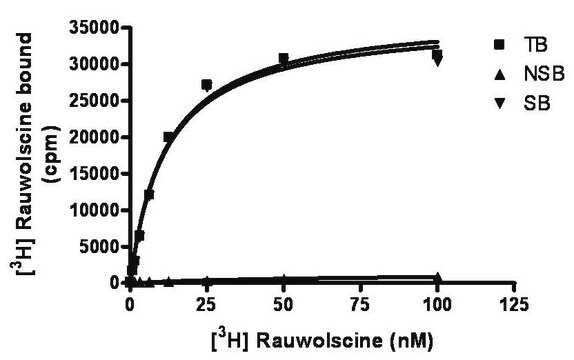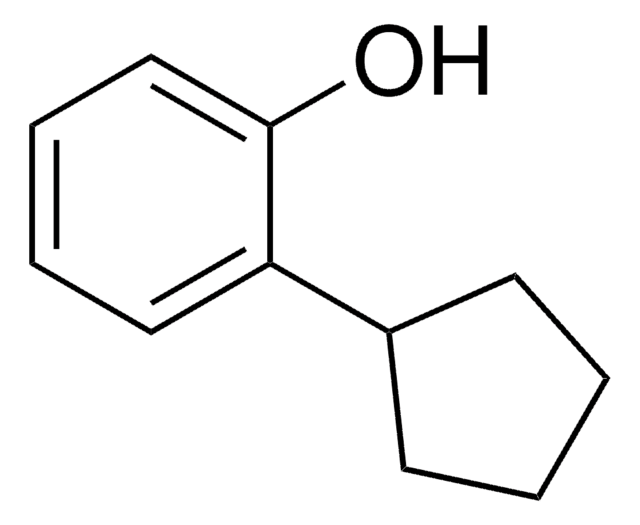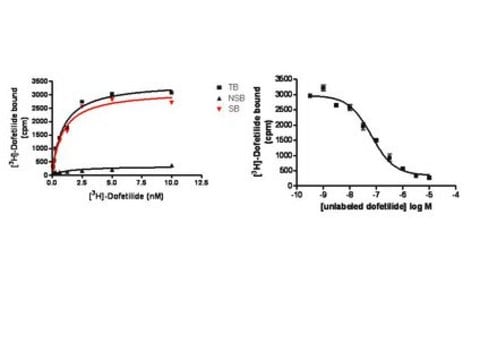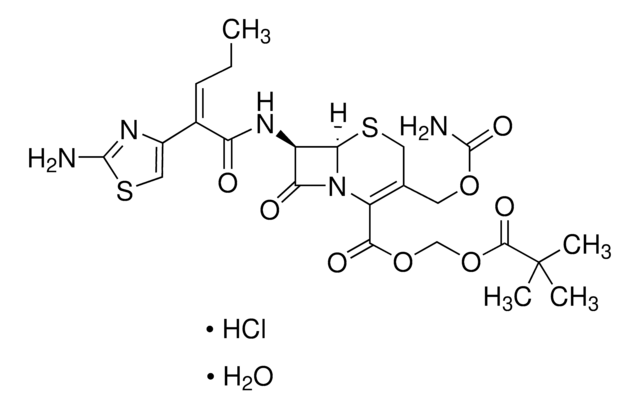HTS104M
ChemiSCREEN Membrane Preparation Recombinant Human β1 Adrenoceptor Receptor
Human beta 1 GPCR membrane preparation for Radioligand binding Assays & GTPγS binding.
Sinónimos:
β₁ Adrenoceptor Membrane Prep, ChemiSCREEN Receptor Kit
About This Item
Productos recomendados
biological source
human
Quality Level
recombinant
expressed in Chem-1 cells
manufacturer/tradename
ChemiScreen
Chemicon®
technique(s)
ligand binding assay: suitable (GTPγS)
radioligand binding assay (RLBA): suitable
NCBI accession no.
UniProt accession no.
shipped in
dry ice
Gene Information
human ... ADRB1(153)
General description
Application
Biochem/physiol Actions
Quality
| 5 µg/well | 10 µg/well | |
|---|---|---|
| Signal:Background | 28.5 | 34.6 |
| Specific Binding (cpm) | 27002 | 28467 |
SPECIFICATIONS: 1 unit = 5 μg membrane preparation
Bmax: 47.9 pmol/mg
Kd: ~2.6 nM
Specifications
Membranes are mixed with radioactive ligand and unlabeled competitor (see Figures 1 and 2 for concentrations tested) in binding buffer in a nonbinding 96-well plate, and incubated for 1-2 h. Prior to filtration, an FC 96-well harvest plate (Millipore cat. # MAHF C1H) is coated with 0.33% polyethyleneimine for 30 min, then washed with 50mM HEPES, pH 7.4. Binding reaction is transferred to the filter plate, and washed 3 times (1 mL per well per wash) with Wash Buffer. The plate is dried and counted.
Binding buffer: 50 mM Hepes, pH 7.4, 5 mM MgCl2, 1 mM CaCl2, filtered and stored at 4°C
Radioligand: [125I]-(-) Iodocyanopindolol (Perkin Elmer # NEX189)
Wash Buffer: 50 mM Hepes, pH 7.4, 500mM NaCl, filtered and stored at 4°C.
Physical form
Liquid in packaging buffer: 50 mM Tris pH 7.4, 10% glycerol and 1% BSA with no preservatives.
Packaging method: Membranes protein were adjusted to the indicated concentration in packaging buffer, rapidly frozen, and stored at -80°C.
Storage and Stability
Legal Information
Disclaimer
Storage Class
12 - Non Combustible Liquids
wgk_germany
WGK 2
flash_point_f
Not applicable
flash_point_c
Not applicable
Certificados de análisis (COA)
Busque Certificados de análisis (COA) introduciendo el número de lote del producto. Los números de lote se encuentran en la etiqueta del producto después de las palabras «Lot» o «Batch»
¿Ya tiene este producto?
Encuentre la documentación para los productos que ha comprado recientemente en la Biblioteca de documentos.
Nuestro equipo de científicos tiene experiencia en todas las áreas de investigación: Ciencias de la vida, Ciencia de los materiales, Síntesis química, Cromatografía, Analítica y muchas otras.
Póngase en contacto con el Servicio técnico








